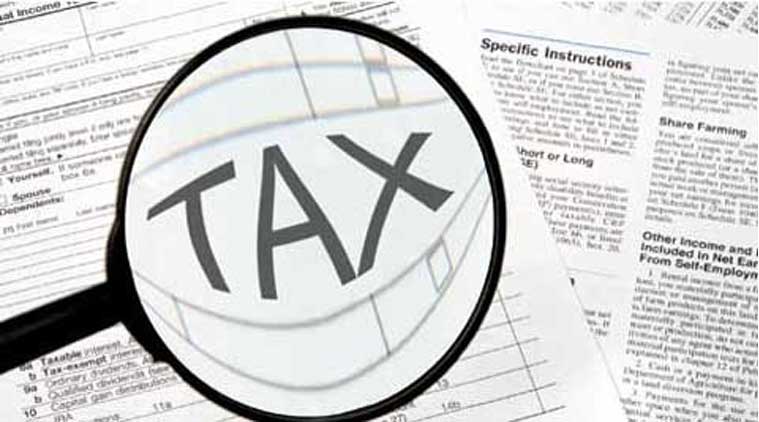Blockchain and cryptocurrency are the future of offshore banking
As I watch the offshore banking industry fight it’s way back to respectability and profitability, I expect blockchain and cryptocurrencies to play a major role in the comeback. Small offshore banks are down, but far from out. Blockchain and cryptocurrency will bring with them a paradigm shift in costs, allowing offshore banks to compete with their larger counterparts in top tier jurisdictions.
Note that I’m talking about the systems and technologies behind blockchain and cryptocurrencies in this article. About the value of blockchain in the offshore banking industry. So, let me get the volatility issue out of the way up front.
Yes, Ethereum, Bitcoin, and the rest are volatile. Ethereum lost about 50% of it’s value recently, and Bitcoin 25% before making a comeback on a deal to prevent the “fork.” And some believe the Ethereum market is a major bubble because of ICOs.
Such assets don’t fit well onto the balance sheets of certain offshore banks because of the regulatory policies of Central Banks.
For example, Belize is not the jurisdiction for an offshore bank that holds cryptocurrency. Their basic capital requirement is 20% and goes higher the more volatile the asset. Want to hold $1 of pink sheet stock? You need $1 of cash on your books.
But there are offshore jurisdictions that are working to attract Crypto banks. For example, the US territory of Puerto Rico just issued a license for a Cryptocurrency International Financial Entity (their version of a banking license). Dominica is also active in the issuance of quality offshore banking licenses and makes allowances for cryptocurrency.
And a number of open-sourced groups have been formed to increase the availability of blockchain technology for offshore banks. For example, the Enterprise Ethereum Alliance became the world’s largest open-source blockchain initiative on July 18, 2017. With members like MasterCard, Cisco and Scotiabank, I have high hopes for this team.
Scotiabank makes EEA interesting as as association offshore banks. Scotia holds a banking license in Puerto Rico, and licenses throughout the Caribbean, but no US license. Scotia is closely tied to Bank of America, and has offices in the United States, but no US charter.
With that said, the value of blockchain and cryptocurrency for offshore banks is in the following three areas:
- The ability to transmit FIAT and cryptocurrency via blockchain outside of the high cost legacy systems like SWIFT and Fedwire.
- The ability to transact without the oversight and compliance costs of a correspondent bank.
- The ability to finance through ICOs and act as a platform for international ICOs for your clients.
Operational Efficiency
I believe that, because of it’s ability to transmit efficiently, blockchain will revolutionize the offshore banking industry. Offshore banks are being crushed by the high costs of compliance and by the outdated systems they’re forced to use.
When a small international bank wants to send a wire, they need to ask their correspondent for permission. Then the correspondent charges a fee, an agent takes a cut (if it’s a nested account), SWIFT charges a fee, and so on. Many banks are forced to charge $100+ to send a wire and net $15 per transfer.
As a result, the only service an offshore bank can offer is wealth management and cash management / retained earnings. You can’t run most business accounts through an offshore bank because the wire fees will eat you alive. Likewise, you can’t easily make payments to vendors or make small transfers in any currency. And, finally, very few clients want to go through the hassle of sending an international wire.
An offshore bank operating over blockchain, or network like Ripple, can send FIAT or crypto ledger to ledger, thereby bypassing high cost wire systems. This will allow them to transmit money across borders at little or no cost.
Once these blockchain systems become available on a wider scale, offshore banks will be able to compete with larger correspondent banks who currently have a monopoly on money transmissions.
I don’t think we’ll need to wait long for blockchain to dominate the offshore banking industry. I have clients setting up in Puerto Rico now under Act 273 that will transfer multiple FIAT currencies over blockchain.
Offshore Bank Compliance Issues and Blockchain
Then there’s the ability to control your compliance costs by reducing or eliminating your exposure to correspondent banking partners. The bane of any offshore bank is correspondent banking. Ask any international banker what they worry about and they’ll say correspondent banking, compliance risks from corresponding partners, and how to keep their correspondent accounts open.
All quality banks will need to deal with AML and KYC. No matter how you transact, you must protect your bank from money launderers and criminals. On the other hand, FATCA and KYC (or even KYCC, Know Your Customer’s Customer), are out of control. The United States and the EU can fine an offshore bank out of existence for an honest mistake and everyone is running scared. Most of these compliance requirements are being pushed upon offshore banks by their correspondent partners.
Reducing the number of transactions processed through your correspondent bank reduces costs, reduces compliance, and allows you to do business on your terms, not those imposed by a global bank.
Someday, you might be able to eliminate the the correspondent parter all together which will change the game. For more, see: How to Setup a Bank for the Marijuana Industry.
Initial Coin Offerings and Offshore Banks
Finally, there’s the ICO market. For many reasons, these offerings are best facilitated by an offshore bank. The bank is best suited to perform the due diligence, secure the transaction, issue the tokens, hedge that token, and providing the FIAT currency against the Crypto that comes in.
ICOs have allowed startups around the world to raise hundreds of millions of dollars by issuing digital tokens. Over half a billion dollars has been raised through these Initial Coin Offerings in the first 6 months of 2017. Amazing growth considering the ICO didn’t even exist 2 years ago.
And the speed of these ICOs is incredible. Genosis raised $12 million in 10 minutes back in April while Brave took in $35 million in less than 30 seconds. Demand for ICOs is strong and the opportunity for offshore banks is significant.
Running these ICOs through an offshore bank will maximize the privacy of the investors and may reduce SEC and other regulations. Operating outside of the purview of US regulators is sure to unlock capital and allow investors to place their capital more efficiently.
And there are plenty of reasons people prefer to hold their crypto offshore. For example, privacy, asset protection, etc. Also, the US IRS is in the process of auditing most crypto accounts at CoinBase. They can do this because of a John Doe summons issued to the brokerage last year.
While there are ICOs which are open to all US persons, the SEC just issued guidance saying that ICOs are regulated transactions (Reg D, Reg S, accredited investor standards, etc). The government hasn’t prosecuted anyone yet, but we all expect they will… and when that happens, some heads will roll. The SEC issued its first statement on ICOs July 25, 2017. See: Using a blockchain doesn’t exempt you from securities regulations.
It also appears that US brokerages will be subject to the money transmission laws of each state. See: Washington’s New Cryptocurrency Exchange Rules Are Now in Effect.
If an offshore business were to run an ICO through an offshore bank, they should avoid these regulations. Of course, you can’t market the offering in the United States without registering and must follow the KYC and AML rules of your jurisdiction. But, the use of an offshore bank for an offshore ICO is sure to reduce costs and streamline the process.
I’m also looking forward to the first ICO by an offshore bank. A high tech international bank focused on privacy and blockchain is a perfect candidate for a big dollar ICO. For more, see: How to Raise Money for an International Bank.
Conclusion
I hope you’ve found this article on why I believe blockchain and cryptocurrencies are the future of offshore banking to be helpful. If you’re considering forming an offshore bank, you might also read through Tax Planning for an International Bank License.
For more information on setting up an offshore bank, or for assistance in opening a correspondent account, please contact us at info@premieroffshore.com or call us at (619) 483-1708.



